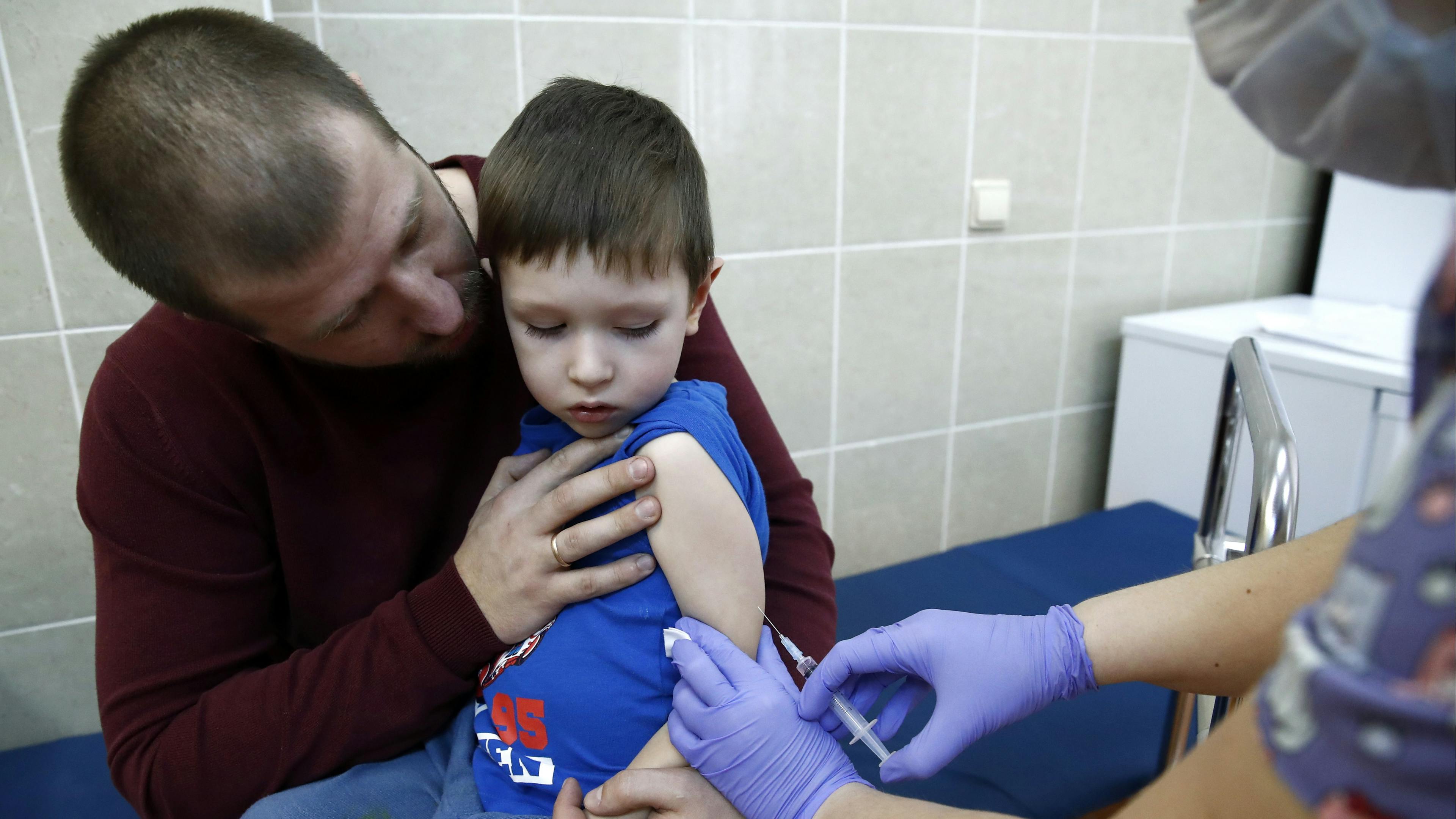2019 is shaping up to be a record year for measles infections.

The Story
Measles is making a comeback.
The Background
Measles is an extremely contagious virus with potentially serious consequences. Someone with the virus can spread it just by sneezing or coughing. At first it feels like getting a cold – think: cough, sore throat, runny nose, fever. But can also lead to a rash. It can be especially dangerous for kids and lead to things like deafness, brain damage, pneumonia, and death. Doctors say the primary way to prevent getting the virus is to get the vaccine.
And you said it’s making a comeback?
Yes. So far this year, more than 600 people in 22 states have gotten measles. That’s more infections than in all of 2018. And it's raising alarms because in 2000, the US said it had completely eliminated measles. But now there have been two bad outbreaks in recent years: one in 2014 and this current one.
How did this happen?
This latest outbreak started last year and is concentrated in a few states – New York, New Jersey, Washington, and California. It spread primarily from people who brought the virus back from other countries like Israel, Ukraine, and the Philippines that are experiencing large outbreaks. Most people who get measles aren’t vaccinated.
BTW, this latest outbreak is impacting tight-knit communities more than others. We explain why in Skimm This.
The Big Issue
There are concerns that lower vaccination rates in the US, as well as misinformation about vaccines are helping the virus spread.
Lower vaccination rates...why’s that?
In recent years, more parents in the US have been saying ‘no thanks’ to vaccinating their kids. Experts say there may be a few reasons for this. One, lack of insurance or access to health care. Two, a growing number of parents claiming exemptions. Even though every state requires kids to be vaccinated to go to public school, some states let parents opt out for pretty much any reason. And this leads to communities with lower vaccination rates and a higher risk of infection.
For more on the history anti-vaccination movement, check out Skimm This.
Hmm pretty much any reason. Like what?
There may be a few.
There’s the myth that vaccines can cause autism. This comes from a study in the ‘90s that was exposed for being based on false data and was later retracted. Multiple studies since have confirmed this isn’t true.
Some parents also don’t think vaccines are necessary, since the diseases they prevent have been out of sight, out of mind for so long now (psst, that’s thanks to vaccines).
Some parents are worried their child’s immune system won’t be able to handle so many vaccines.
There’s a list of other concerns – and misinformation has become more widespread thanks to social media. The bottom line is that major risks associated with vaccines (like allergic reaction) are very very low.
The Debate
The latest outbreak has raised questions about whether states should allow parents to claim exemptions from vaccines.
Some say vaccine concerns are legitimate, and that the health care system needs to better communicate vaccine risks to parents.
Others say this is a global crisis, and that everyone from social media companies to governments need to make it easier for parents to understand the importance of vaccines.
The Impact
Outbreaks can lead to higher demand for vaccines. Local health officials have recently vaccinated thousands of people. Here’s what else is being done:
Washington state lawmakers are taking up bills that would ban parents from claiming certain exemptions to the measles vaccine.
New York City is requiring some communities to get vaccinated or be fined. A group of parents said ‘we see your requirement and raise you a lawsuit.’
Some kids are taking matters into their own hands – like this teenager who testified on Capitol Hill about getting vaccinated against his mom’s wishes.
If I’m vaccinated, am I safe?
If you got both doses of the MMR vaccine (measles, mumps, rubella) as a kid, you’re typically protected for life. And overall, US vaccination rates are high, which is crucial to vaccines working. Enter: herd immunity. This is the concept that a certain number of people in a community have to be immune from a disease to keep it from spreading. For a really contagious disease like measles, about 93-95% of people need to be vaccinated to keep it in check. Some of the communities recently affected may be below that threshold.
theSkimm
Measles is preventable. But the fewer people who get the vaccine, the more at risk the US is for these kinds of outbreaks. And there are fears in the public health community that the anti-vax movement could hurt decades of progress in wiping out deadly diseases.
Live Smarter
Sign up for the Daily Skimm email newsletter. Delivered to your inbox every morning and prepares you for your day in minutes.